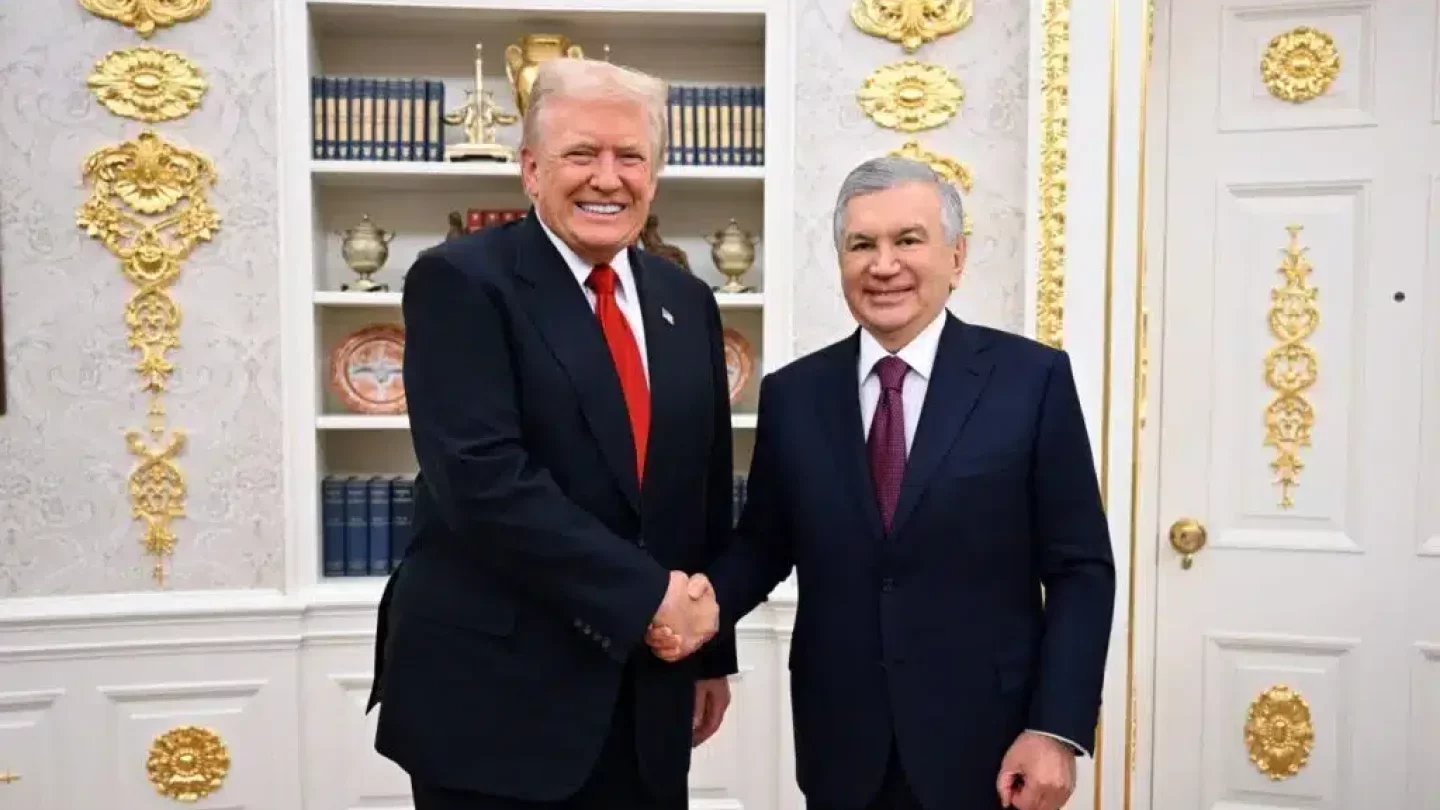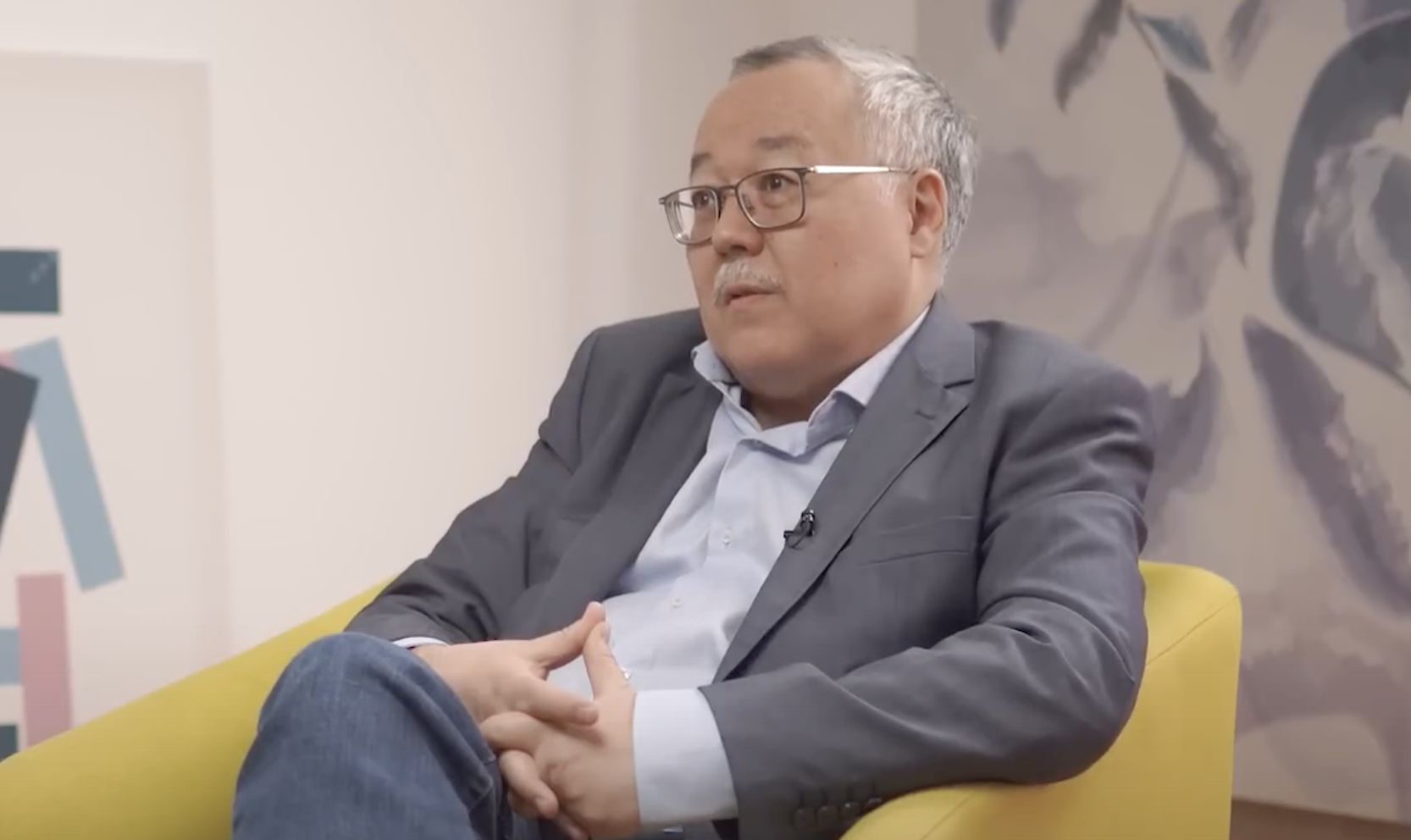Trump Heard What He Wanted: Can Uzbekistan Really Give The U.S. $135 Billion?
 Photo: website of the President of Uzbekistan
Photo: website of the President of Uzbekistan
Following the visit of Central Asian leaders to the United States and their announcements of large-scale investments in the American economy, experts began debating how realistic these figures are.
Political scientist Sultan Akimbekov, in an interview with the YouTube channel QAIMAQ, said that the Uzbek leader’s statements were more of a diplomatic gesture than a genuine economic agreement.
After talks with Donald Trump, it was reported that Uzbekistan plans to invest more than $135 billion in the US economy, including $35 billion over the next three years. The US President called this an "incredible trade and economic deal" and thanked the "highly respected President of Uzbekistan."

However, according to Akimbekov, such numbers lack an economic foundation.
The investments are said to target key American sectors, including critical mineral extraction, aviation, auto parts manufacturing, agriculture, IT, the chemical industry, and energy.
If we're talking about Uzbekistan, 100 billion is a completely unrealistic sum. The country will never be able to raise that kind of money under any circumstances. This, of course, creates a strange impression. Trump wanted to hear big numbers, and they were given to him. He, in turn, called it an 'incredible deal.' But this isn't some kind of breakthrough. What's important is this: Trump is a kind of sheriff in the Wild West, a powerful player everyone has to reckon with. He's motivated, making unexpected moves in various directions, and everyone should take this into account and draw the appropriate conclusions,
the expert said.
Akimbekov recalled that following a similar visit, Kazakhstan signed agreements worth about $17 billion, which appears more realistic and is supported by specific projects.
In contrast, Uzbekistan’s commitments raise doubts.
The political scientist believes the figures announced by Uzbekistan are largely symbolic.
And that's exactly how we need to approach this. When it comes to essentially personalistic power —and Trump is exercising precisely that kind of power in America today — then, according to classic formats, we need to find ways to communicate with him, and ours have found them. The cost is a separate issue, but overall, this will help us in the context of our current maneuvering and our multi-vector policy,
he added.
The expert also noted that, despite the United States’ increased attention to Central Asia, a shift in the regional balance of power should not be expected.
As American businessman of Kazakh descent Timur Seitmuratov explained in an interview with ORDA News, Washington has intensified its focus on Central Asia after severing ties with Russia, which "failed to live up to expectations."
The US is now rethinking its regional approach and seeking direct dialogue with key countries to maintain strategic flexibility.
Qasym-Jomart Toqayev returned from Washington with contracts totaling $17 billion.
However, critics argue that these are purchases rather than investments. Economists note that most of the deals represent a capital outflow from Kazakhstan. Economist Arman Batayev stressed that the main outcome of the visit is not US investment in Kazakhstan but, rather, Kazakhstan investing in the American manufacturing sector — buying civilian aircraft, agricultural machinery, locomotives, and electric aircraft.
He added that this is consistent with Kazakhstan’s economic pattern: exporting raw materials and importing high-tech, capital-intensive goods.
Original Author: Maria Kravtsova
Latest news
- Court Rules Against Zhezkazgan-Air in Antitrust Case
- Zelenskyy-Ally Timur Mindich Implicated in Major Energoatom Corruption Probe
- Ministry of Culture Explains What Is Considered LGBT Propaganda
- NeMolchi Reports Case of Domestic Violence in Petropavlovsk
- The Right to Be Forgotten: How Kazakhstan Plans to Regulate Digital Traces
- Kazakhstan: How Civil Servants Are Switching to The Domestic Messenger
- Trump Heard What He Wanted: Can Uzbekistan Really Give The U.S. $135 Billion?
- Toqayev Meets Putin in Moscow
- Air Astana’s Profit Drops Amid Operational and Currency Challenges
- Shukhrat Ibragimov Denies Sale of ERG Assets
- Ancient Saka Weapons Discovered in Qaraganda Region
- Human Rights Groups Urge Kazakhstan’s Parliament to Reject Anti-LGBTQ+ Amendments
- From Honor Huard to Friendship Square: How Moscow Welcomed Toqayev
- Before Meeting Putin: Toqayev Outlines Joint Projects
- President Toqayev to Meet Putin in Moscow on November 12
- Dubai-Based Company Plans Entry into Kazakhstan’s Taxi Market
- Romania Probes Alleged Ammunition Scheme Linked to Kazakhstan
- Kazakhstan: Authorities to Investigate Army Conscription, Medical Exams After Protest by Soldiers’ Mothers
- Syria: U.S. Temporarily Suspends Caesar Act Sanctions
- Qorqyt Ata Special Economic Zone Receives Industrial Status

